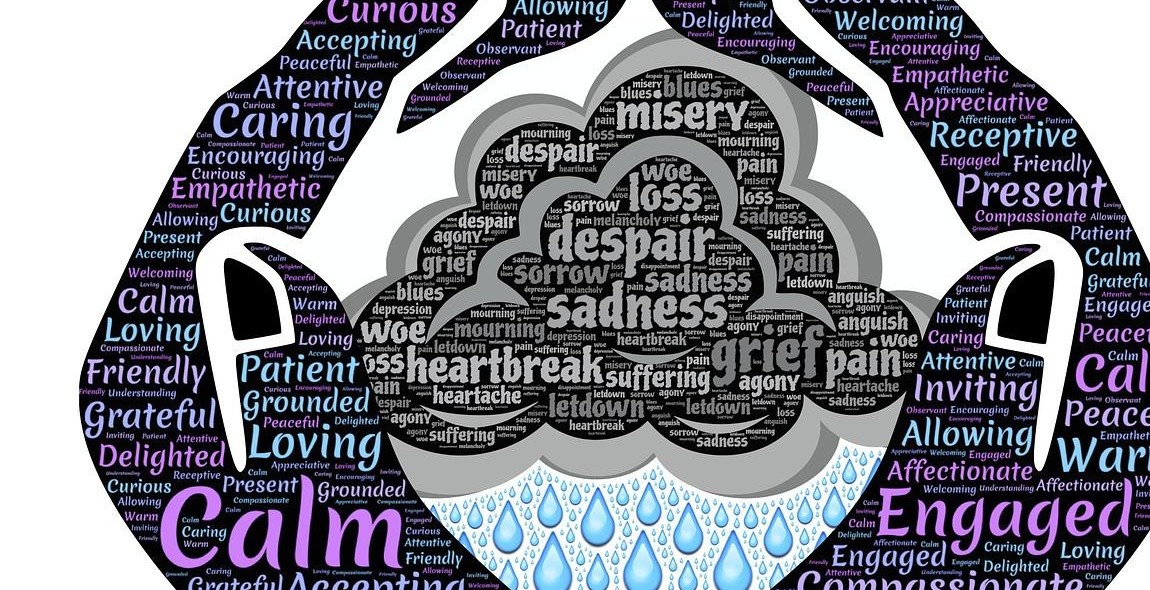Decoding Love: The Psychology of Relationships
Love is a complex and often mysterious emotion. It can bring immense joy and happiness, but it can also cause heartbreak and pain. As a professional article writer and content creator with years of experience, I have delved deep into the psychology of relationships and love. Through my research and personal experience, I have come to understand the intricacies of how love works and what makes relationships thrive.
The Importance of Understanding Relationship Psychology
Relationships are an essential part of our lives, and understanding the psychology behind them can help us navigate them more effectively. Whether you are in a committed relationship, looking for love, or simply trying to understand your own emotions, understanding the psychology of relationships is crucial.
As a love and relationships psychology guru, I have helped countless individuals understand the complexities of love and relationships. In this article, I will share my insights and knowledge on the topic, providing you with valuable information that can help you improve your relationships and find happiness in love.
The Science of Love
Love is a complex and multifaceted emotion that has been studied extensively by psychologists and neuroscientists. While love may seem like a magical and unexplainable feeling, there are actually several scientific components that contribute to the experience of love.
The Three Components of Love
According to psychologist Robert Sternberg, there are three main components of love: intimacy, passion, and commitment. Intimacy refers to the emotional connection and closeness between two people, while passion refers to the physical attraction and desire. Commitment involves the decision to maintain the relationship and work through any challenges that may arise.
Chemical Reactions in the Brain
When we experience love, our brains release a variety of chemicals that contribute to the feelings of euphoria and connection. These chemicals include dopamine, oxytocin, and serotonin. Dopamine is associated with pleasure and reward, while oxytocin is often referred to as the “bonding hormone” because it is released during physical touch and promotes feelings of trust and attachment. Serotonin is linked to mood regulation and can contribute to feelings of happiness and contentment.
Attachment Styles in Relationships
Attachment theory suggests that our early childhood experiences with caregivers can shape our attachment styles in adulthood and influence the way we approach relationships. People with secure attachment styles tend to feel comfortable with intimacy and are able to trust their partners. Those with avoidant attachment styles may struggle with emotional closeness and may be more independent. People with anxious attachment styles may crave intimacy but also fear rejection and abandonment.
| Components of Love | Chemical Reactions in Brain | Attachment Styles |
|---|---|---|
| Intimacy Passion Commitment |
Dopamine Oxytocin Serotonin |
Secure Avoidant Anxious |

Communication in Relationships
Communication is a crucial aspect of every relationship. It is the foundation of a healthy and happy relationship. Effective communication skills can help partners to understand each other’s needs, desires, and feelings. It can also help to prevent misunderstandings, resolve conflicts, and build trust and intimacy.
Types of Communication
There are two types of communication in relationships: verbal and nonverbal. Verbal communication involves the use of words to express thoughts, feelings, and emotions. Nonverbal communication includes body language, facial expressions, and gestures. Both types of communication are important and can convey different meanings.
Effective Communication Skills
Effective communication skills are essential for a successful relationship. Here are some tips for improving communication:
- Listen actively and attentively
- Express thoughts and feelings clearly and directly
- Avoid interrupting or dismissing your partner’s feelings
- Use “I” statements instead of “you” statements
- Be open to feedback and willing to compromise
Conflict Resolution Strategies
Conflicts are inevitable in every relationship. However, how partners handle conflicts can determine the success of their relationship. Here are some conflict resolution strategies:
| Strategy | Description |
|---|---|
| Active Listening | Listen to your partner’s concerns without interrupting or judging. |
| Compromise | Find a solution that meets both partners’ needs. |
| Take a Break | Take a break to calm down and reflect on the situation before continuing the discussion. |
| Forgive and Let Go | Forgive your partner and let go of the resentment to move forward. |
Overall, communication is an essential component of any successful relationship. By improving communication skills, partners can build a strong foundation of trust, intimacy, and understanding in their relationship.
The Power of Emotional Intelligence
Emotional Intelligence (EI) refers to the ability to recognize, understand and manage our own emotions, as well as the emotions of others. It involves being aware of our own feelings and the impact they have on our behavior, as well as being able to empathize with and respond appropriately to the emotions of others.
Emotional Intelligence in Relationships
Developing emotional intelligence is crucial for building and maintaining healthy relationships. When we are emotionally intelligent, we are better equipped to communicate effectively, resolve conflicts, and build intimacy and trust with our partners.
One of the key components of emotional intelligence in relationships is empathy. Empathy allows us to understand and respond to our partner’s emotions in a supportive and caring way. It involves being able to put ourselves in our partner’s shoes, and to respond to their emotions with kindness and understanding.
Another important aspect of emotional intelligence in relationships is emotional regulation. This involves the ability to manage our own emotions in a healthy and constructive way. When we are emotionally regulated, we are better able to communicate our needs and feelings to our partner, and to respond to their needs and feelings in a calm and respectful manner.
Developing Emotional Intelligence
Developing emotional intelligence takes time and practice, but it is a skill that can be learned and improved upon. Some ways to develop emotional intelligence include:
- Practicing self-awareness by paying attention to our own emotions and how they affect our behavior
- Practicing active listening to better understand our partner’s emotions and needs
- Developing empathy by putting ourselves in our partner’s shoes and imagining how they might be feeling
- Learning to regulate our own emotions through techniques such as deep breathing, meditation, and mindfulness
- Seeking out resources such as therapy or counseling to help develop emotional intelligence skills
Overall, developing emotional intelligence is a powerful tool for building and maintaining healthy relationships. By becoming more self-aware, empathetic, and emotionally regulated, we can create deeper connections with our partners and build stronger, more fulfilling relationships.
Understanding Attachment Styles
Attachment styles are patterns of behavior that develop in early childhood and continue into adulthood, influencing how we relate to others in our romantic relationships. There are three main attachment styles:
- Secure Attachment Style: People with a secure attachment style feel comfortable with intimacy and are able to trust and depend on their partners. They have healthy self-esteem and are confident in their ability to communicate their needs.
- Anxious Attachment Style: People with an anxious attachment style crave intimacy, but often feel insecure and worry that their partners will leave them. They may become clingy and seek constant reassurance from their partners.
- Avoidant Attachment Style: People with an avoidant attachment style value independence and may feel uncomfortable with too much closeness. They may avoid emotional intimacy and struggle to express their feelings.
It is important to note that attachment styles are not fixed and can change over time, particularly with therapy and self-reflection. Understanding your own attachment style and that of your partner can help you communicate more effectively and navigate challenges in your relationship.
Secure Attachment Style
Individuals with a secure attachment style are generally comfortable with intimacy and are able to trust and depend on their partners. They have healthy self-esteem and are confident in their ability to communicate their needs. They are able to express their emotions clearly and are responsive to their partner’s needs.
Anxious Attachment Style
People with an anxious attachment style crave intimacy, but often feel insecure and worry that their partners will leave them. They may become clingy and seek constant reassurance from their partners. They may also struggle with communication and have difficulty expressing their needs.
Avoidant Attachment Style
Individuals with an avoidant attachment style value independence and may feel uncomfortable with too much closeness. They may avoid emotional intimacy and struggle to express their feelings. They may also be dismissive of their partner’s needs and emotions.
| Attachment Style | Comfort with Intimacy | Trust and Dependence | Communication |
|---|---|---|---|
| Secure Attachment | Comfortable | High | Clear and Responsive |
| Anxious Attachment | Craving | Low | Difficulty Expressing Needs |
| Avoidant Attachment | Uncomfortable | Low | Difficulty Expressing Feelings |

The Importance of Self-Care
As a love and relationships psychology guru, I cannot stress enough the importance of self-care in maintaining healthy relationships. Self-care is the practice of taking care of oneself physically, mentally, and emotionally. It involves setting boundaries, self-reflection, and taking care of yourself.
Taking Care of Yourself
Taking care of yourself means making time for activities that make you happy and fulfilled. It also means taking care of your physical health by eating well, exercising, and getting enough rest. When you take care of yourself, you feel better about yourself, and this positive energy spills over into your relationships.
Setting Boundaries
Setting boundaries is essential in any relationship. It involves communicating your needs and limits to your partner, family, or friends. Setting boundaries can prevent resentment and misunderstandings in relationships. When you set boundaries, you protect your mental and emotional well-being and show others how to treat you.
Self-Reflection
Self-reflection is the practice of looking inward to examine your thoughts, emotions, and behaviors. It helps you understand yourself better, identify your strengths and weaknesses, and make positive changes in your life. Self-reflection also helps you take responsibility for your actions and decisions in relationships.
- Self-care is essential for maintaining healthy relationships.
- Taking care of yourself physically, mentally, and emotionally is crucial.
- Setting boundaries can prevent misunderstandings and resentment in relationships.
- Self-reflection helps you understand yourself better and make positive changes.
By practicing self-care, setting boundaries, and self-reflection, you can improve your relationships and be a better partner, family member, or friend.

Conclusion
As someone who has spent years studying and practicing in the field of love and relationships psychology, I can confidently say that understanding the psychology behind our romantic connections is crucial for building and maintaining healthy, fulfilling relationships.
Through my own personal experiences and my work with clients, I have seen firsthand how our past experiences, attachment styles, and communication patterns can significantly impact the way we approach and engage in relationships.
But by taking the time to decode and understand these underlying psychological factors, we can begin to make positive changes and create stronger, more meaningful connections with our partners.
Remember, relationships are not always easy, and it’s normal to encounter challenges along the way. However, by keeping an open mind, practicing effective communication, and prioritizing your own emotional health, you can navigate these obstacles and build a lasting, fulfilling partnership.
If you’re struggling in your own relationship or simply looking to deepen your understanding of the psychology of love, I encourage you to seek out professional support and continue learning about this fascinating and endlessly complex topic.
- Communicate effectively
- Understand your attachment style
- Be open to change
- Prioritize emotional health
By following these principles, you can build a strong foundation for a healthy, happy, and fulfilling relationship.
